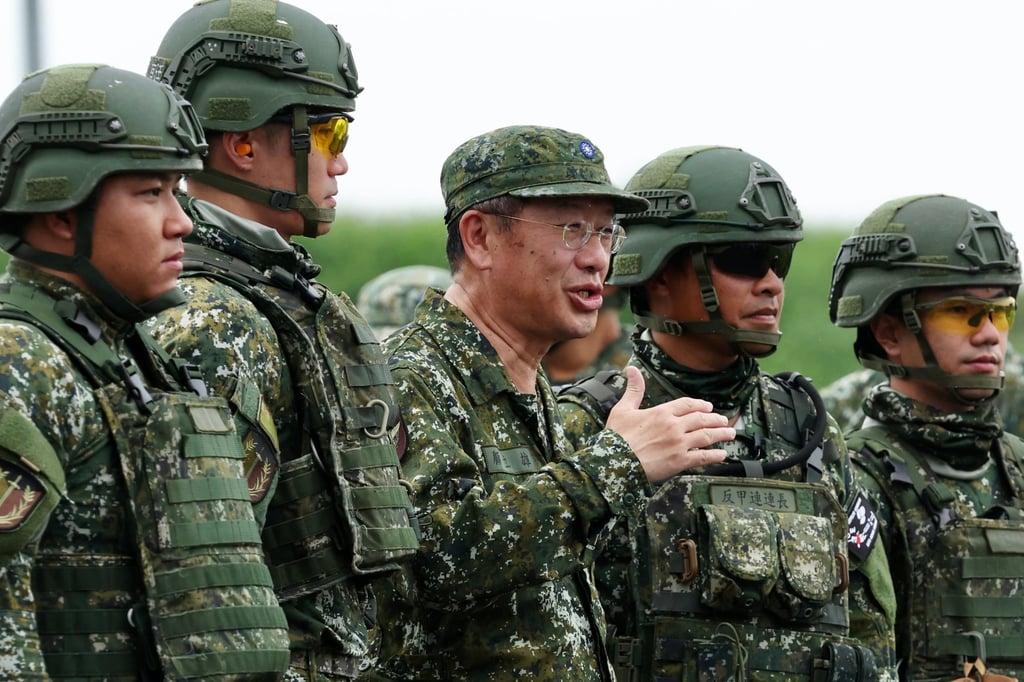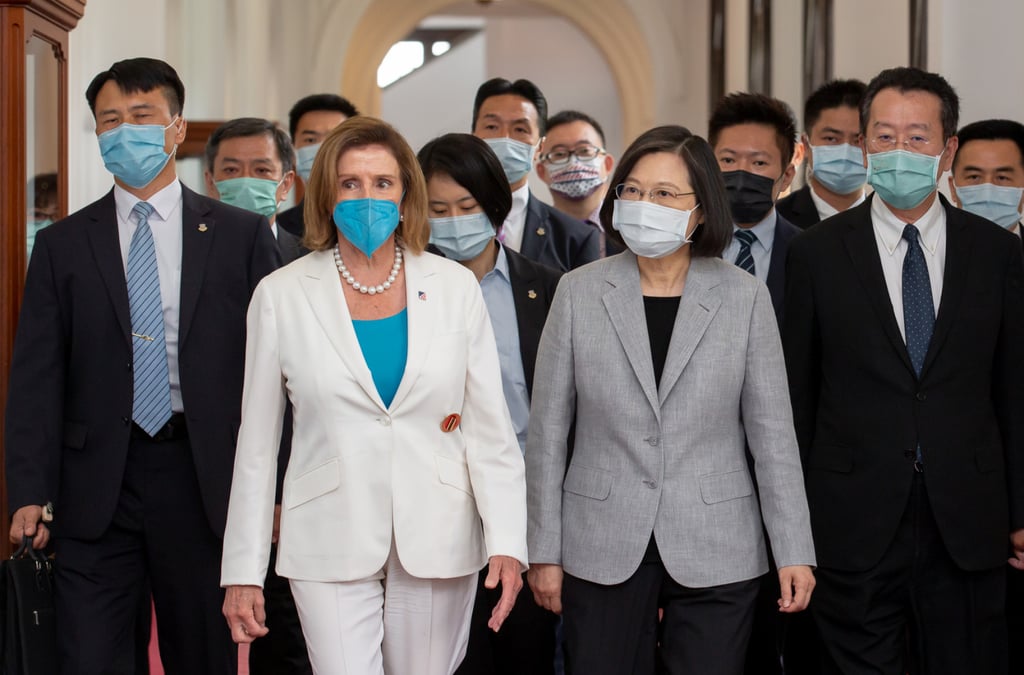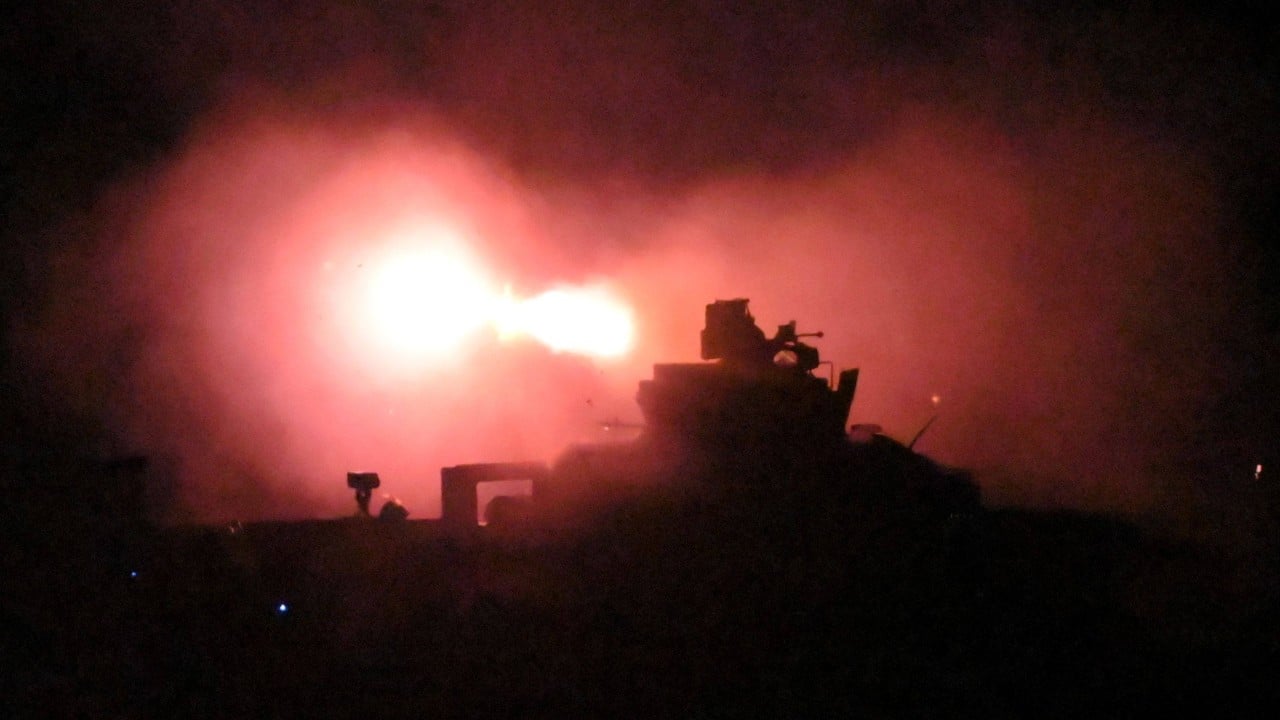Washington’s policy of strategic ambiguity has undercut Taiwan’s ability to defend itself against Beijing, sending mixed signals amid the mainland’s blockades and grey-zone activities, the head of an influential business association said on Wednesday.
Rupert Hammond-Chambers, president of the US-Taiwan Business Council, a non-profit group fostering trade and business relations between the two sides, believed an administration led by Donald Trump could adopt a clearer policy towards Taiwan sooner and be more open to arms sales than a Democratic one.
Strategic ambiguity is typically understood as intentionally creating uncertainty for both Beijing and Taipei about whether the US would intervene in an armed conflict.
Hammond-Chambers explained that while the current policy offered no guarantees of American defence support, it restricted Taipei’s ability to acquire comprehensive defence capabilities, with the US “directing Taiwan only to buy in a certain area and only providing technologies in that area”.
“In an era of strategic clarity, which I certainly believe the US should move to, we could have a division of responsibility where the United States and Taiwan come to an understanding about where Taiwan will apply its resources and the US provides some guarantees that it will provide coverage in those other areas,” he said.
The council’s long-time head cited as an example the Joe Biden administration’s denying a Taiwanese request for anti-submarine helicopters needed to patrol waters around the island.
Since March, two other defence deals have been called off as “too expensive” by both sides, according to reports.
Last week, a delegation from Taiwan led by Wellington Koo, the island’s defence chief, met with US officials in Washington.
“Who’s going to provide anti-submarine patrolling around the island if the United States is not prepared to provide Taiwan modern kit to take on that responsibility?” he asked.
Hammond-Chambers shared his remarks with the Post on the sidelines of an event examining Taiwan’s defence capabilities organised by the Global Taiwan Institute, a Washington-based think tank.

The Chinese embassy in Washington did not immediately respond to a request for comment.
Beijing sees Taiwan as part of China to be reunited by force if necessary.
Most countries, including the US, do not recognise Taiwan as an independent state, but Washington is opposed to any attempt to take the self-governed island by force and is committed to supplying it with weapons.
Colby Ferland of the Project 2049 Institute – a think tank focused on US policy in the Asia-Pacific as it relates to mainland China and Taiwan – at the event called Taipei’s procurement priorities “really confused” because of the uncertainty surrounding its role in a defensive crisis and whether Washington would come to its aid.
Whenever Taiwan presented the US a list of required items, he added, a stilted process often ensued in which Washington determined what it could and could not provide.
“And then it just ends up back and forth and back and forth,” Ferland said. “Years go by and then you end up with some parts and maintenance and life-cycle sustainment.”

A substantial backlog of US$19.1 billion worth of weapons ordered by Taiwan has piled up, some of which has been delayed for a decade or more, according to the Cato Institute, a Washington-based think tank.
The largest portion consists of US$10.87 billion in traditional arms, followed by US$5.4 billion worth of asymmetric weapons and US$2.84 billion in munitions.
Hammond-Chambers voiced hope that the US was “moving towards more clarity”, saying the Trump administration achieved a level of bilateral economic cooperation that the administrations of George W. Bush and Barack Obama had been reluctant to pursue.
“In fairness to the Biden administration, they have continued many of those efforts in the economic and defence realm,” he added, predicting that “the movement will be slower under a President [Kamala] Harris” than if Trump returned to the White House.
The shift towards greater clarity on America’s position on Taiwan has been bipartisan over the years, said Hammond-Chambers, citing the controversial 2022 visit to Taiwan by then-US House speaker Nancy Pelosi, a California Democrat.
“When bipartisan congressional delegations travel to the island, they speak with considerable clarity about American national interest.”


